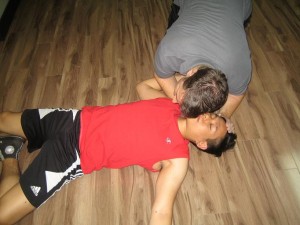Overview
When a heart attack occurs, this results in damage to the heart in that the heart cannot supply the blood that is needed. Coronary heart disease is often the reason that a person has a heart attack. A heart attack actually happens when there is a clot that is blocking an artery. The heart becomes starved for oxygen, which results in cells dying, causing permanent damage,
Common Signs of Heart Attack

There are several signs of heart attack, and anyone can be affected. Even those who are young and never thought that this could happen to them. There are several warning signs, including:
- Pain or discomfort in the center of the chest
- Feeling as though you are suffocating with this pain
- Having a hard time breathing
Women often mistake a heart attack for something less serious, as they are less likely to report having chest pain. They may simply feel weak, which results in the woman not reporting this or getting medical attention. Diabetics often misreport their symptoms as well, as they often associate heart attack symptoms with low blood sugar symptoms. Through using an ECG, doctors can find for certain if this is a heart attack or not.
Other signs to keep in mind about a heart attack include:
- Shortness of breath
- Fainting
- Cough
- Anxiety
- Being dizzy
- Heart beating too fast or irregularly
- Nausea or vomiting
- Sweating
For women, some of the common signs that they report include:
- Shortness of breath though they may not have any chest discomfort
- Pressure, squeezing or fullness in the center of the chest that comes and goes
- Light-headedness
- Nausea
- Sweating
Study the signs, but keep in mind: Even if you’re not certain someone is experiencing a heart attack, have it assessed. A few minutes is the difference between life and death! A quick response can save someone life. Don’t delay – phone for an ambulance or your nearest hospital. Phoning for an ambulance is the quickest way to acquire lifesaving medical help. Emergency employees can start treatment as soon as they get to the scene — much sooner than if somebody drives to the hospital by car. EMS employees are also skilled to resuscitate somebody whose heart is not beating. Patients with pain on the chest who get there by ambulance generally get quicker treatment at the hospital, too. It is better to phone EMS for fast transportation to the hospital.
